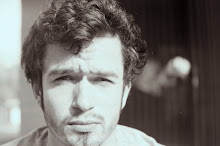Not persons then, but actual parts of our minds are what Jung finds symbolised in the figures of myth, and the development of the mythic hero from birth through to adolescence symbolises the development of ego-consciousness and the differentiation/individuation of oneself from the external world. The hero's adulthood and death then, would symbolise the emergence of the Self as a product of the ego's return to and reintegration with the unconscious. As a symbol of the unconscious, the hero (or demon) also symbolises the libido, which we must remember for Jung, is neutral energy and not only the exlusively (and obvious) sexual or aggressive libido of Freudian psychoanalysis. Jung says that the hero is typically a wanderer, and “wandering is a symbol of longing, of the restless urge which never finds its object, of nostalgia for the lost mother.” (Jung, 1956, CW 5, 'The Origin of the Hero', par. 299) The joys and sorrows of wandering heroes compare well to the wandering of the sun with its zenith and nadir, and from this connection [the Freudians] concluded that the myth of the hero is a solar myth. Leaving this astro-metereological symbolism behind, Jung's psychological interpretation sees the hero as “a self-representation of the longing of the unconscious, of its unquenchable desire for the light of consciousness...[which is] continually in danger of being led astray by its own light and of becoming a rootless will o' the wisp.” (Ibid.) The hero/libido longs for “the healing power of nature, for the deep wells of being and for unconscious communion with life in all its countless forms.” (Ibid.)
Mephisto: This lofty mystery I must now unfold.
Goddesses throned in solitude, sublime,
Set in no place, still less in any time, [atemporal, a spatial]
At the mere thought of them my blood runs cold.
They are the Mothers!
…
Goddesses, unknown to mortal mind,
And named indeed with dread among our kind.
To reach them you must plumb earth's deepest vault; [unconscious]
That we have need of them is your fault. [man]
Faust: Where leads the way?
Mephisto: There's none! To the untrodden,
Untreadable regions – the unforgotten [repressed]
And unforgettable—for which prepare!
There are no bolts, no hatches to be lifted,
Through endless solitudes you shall be drifted.
Can you imagine Nothing everywhere?
…
Supposing you had swum across the ocean
And gazed upon the immensity of space,
Still you would see wave after wave in motion,
And even though you feared the world should cease,
You'd still see something—in the limpid green
Of the calm deep are gliding dolphins seen,
The flying clouds above, sun, moon, star.
But blank is that eternal Void afar.
You do not hear your footfall, and you meet
No solid ground on which to set your feet.
…
Here, take this key.
…
The key will smell the right place from all others:
Follow it down, it leads you to the Mother.
…
The to the depths!--I could as well say height:
Its all the same. From the Existent fleeing,
Take the free world of forms for your delight,
Rejoice in things that long have ceased from being.
The busy brood will weave like coiling cloud,
But swing your key to keep away the crowd!
…
A fiery tripod warns you to beware,
This is the nethermost place where now you are.
You shall behold the Mothers by its light,
Some of them sit, some walk, some stand upright,
Just as they please. Formation, transformation,
Eternal blind's eternal recreation.
Thronged round with images of things to be,
They see you not, shadows are all they see.
They pluck up heart, the danger here is great,
Approach the tripod, do not hesitate,
And touch it with the key.
[trans. MacNeice, pp. 175Ff, & Wayne, part II, pp. 76ff)

I read this and I'm brought to a place I know. a restless traveller in search of what has been lost and unlikely to rediscover since it lays in the past, in innocence and childhood and in maternal love. The journey is long and goal unattainable, the further we travel in search of what is lost the further we are from it but the search is all we know. Not without joy or sadness but there is a balance to be struck to gain the wisdom to 'treat those two imposters- triumph and disaster just the same' but also to seek experience and knowledge even though ultimately our path may lead us to conclude that there is a duality in existence as a result of our own duality, that which is Vs that which we believe. The Greeks believed in 3 truths, that which one person believes, that which others believe and that which is. By its very nature we can never know know that which is since our own understanding will compromise it. To observe, to understand is to change the nature of what is being observed. XXW
ReplyDelete